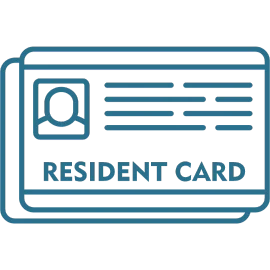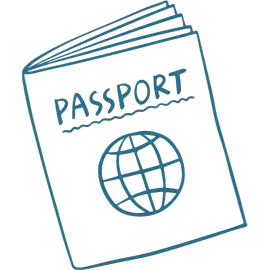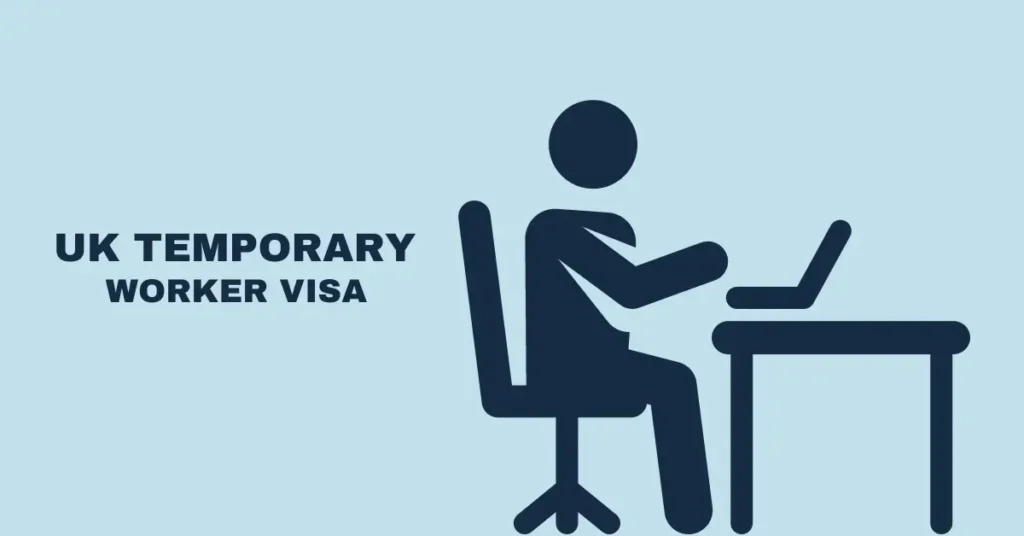What is the UK Skilled Worker Visa?
The UK Skilled Worker Visa is designed for international professionals possessing the requisite skills to work in the United Kingdom under licensed UK employers. It serves as a replacement for the Tier 2 visa, having been introduced at the conclusion of 2020. This visa program is open to individuals with qualifications at RQF Level 3 (equivalent to A-level in the UK) or higher, within eligible occupations.
This long-term work visa is initially granted for a period of up to five years, contingent upon the duration specified in your Certificate of Sponsorship. Notably, the visa remains valid only as long as you continue in the same role with your sponsoring employer. Any desire to change roles or employers necessitates the submission of a new application for a Skilled Worker visa.
Under the Skilled Worker route, you have the opportunity to extend your visa prior to its expiration. After a qualifying period of five years, you can apply for Indefinite Leave to Remain (ILR) and, one year later, pursue British citizenship. Aspiring applicants for the UK Skilled Worker Visa must secure a job offer and ensure compliance with the detailed eligibility criteria outlined below.
If the Skilled Worker Visa isn’t the most suitable option, there are alternative work routes worth exploring. For additional information on various work visas, please visit our UK Work Visas page.
Differences Between Skilled Worker Visa And Tier 2 Work Visa
Distinguishing the Skilled Worker Visa from the prior Tier 2 (General) work visa before 2021 reveals several noteworthy advantages and distinctions, including:
- Lowered Skill Level Requirement: The skill level prerequisite has decreased from RQF level 6 to RQF level 3, significantly expanding the scope of occupations eligible under this visa route.
- Reduced Minimum Salary: The minimum salary requirement has been lowered from £30,000 to £26,200. Additionally, eligibility for a Skilled Worker Visa is feasible with a lower salary in various situations, as detailed below.
- Inclusion of New Market Entrants: The Skilled Worker route is now accessible to new market entrants, such as recent graduates.
- No Visa Cap: Unlike its predecessor, there is no numerical cap on the issuance of Skilled Worker visas in the UK.
- Exemption from Resident Labour Market Test (RLMT): The skilled worker visa does not necessitate a Resident Labour Market Test, streamlining and expediting the recruitment process for skilled overseas workers.
- Elimination of Cooling-off Period: The former cooling-off period, which mandated that international workers departing the UK wait a year before applying for a new work visa, has been abolished.
These amendments collectively enhance the attractiveness and efficiency of the Skilled Worker Visa in comparison to the previous Tier 2 (General) work visa.
Eligibility Criteria and Requirements for the UK Skilled Worker Visa
The eligibility criteria for the Skilled Worker Visa encompass the following:
- Job Offer from a UK Employer:
- A prerequisite is securing a job offer from a UK employer.
- Employer Approval:
- Your employer must be listed as an approved sponsor by the Home Office.
- Certificate of Sponsorship:
- A valid “Certificate of Sponsorship” must be issued by your employer.
- Eligible Occupation:
- The employment role must be included in the list of eligible occupations.
- Skill Level Requirement:
- Meeting the skill level requirement is imperative, with a minimum equivalent to RQF level 3.
- Minimum Salary Requirements:
- The minimum annual salary must meet or exceed £26,200.
- English Language Proficiency:
- Fulfilling the English language proficiency requirements is essential.
- Financial Capability:
- A demonstration of financial capability involves having £1,270 in your bank account to support yourself in the UK.
For detailed explanations of each eligibility criterion, refer to the subsequent sections below.
Job Offer from a UK Employer
To submit a successful application for a Skilled Worker visa, it is essential to possess a valid job offer from a licensed UK employer before initiating the application process. This offer must originate from an A-rated business featured on the list of licenced sponsors, align with a role listed under eligible occupations, and meet the stipulated minimum salary requirements. Additionally, a valid Certificate of Sponsorship from your UK employer is a requirement.
Employer Approval
Your employment offer should originate from a company included in the Home Office’s roster of licensed sponsors. Additionally, it is crucial to verify that your employer possesses the necessary licence to engage international workers through the Skilled Worker Route. These licenses are issued based on the type of visa sought, and it’s essential that your employer holds an A-rating. Employers with a B-rating are ineligible to issue new Certificates of Sponsorship until they align with the Home Office’s compliance requirements and attain an A-rating. It is advisable to confirm this status before initiating the application process to mitigate the risk of potential delays or denials.
Certificate of Sponsorship
As previously detailed, to seek a Skilled Worker visa, you must possess a valid Certificate of Sponsorship (CoS) from your UK employer.
A Certificate of Sponsorship (CoS) is a digital document containing details about the sponsored role, encompassing your job title and type, commencement and conclusion dates of your employment, gross salary, your sponsor licence number, and the expiration date. The CoS essentially acts as a comprehensive record, providing key information for both the applicant and the immigration authorities involved in the visa application process.
Eligible Occupation
UK Visas and Immigration will exclusively authorise a Skilled Worker visa for positions listed under eligible occupations. It is imperative to possess the required skills and/or experience essential for the role you are intended to undertake in the UK. To confirm the eligibility of your occupation, you may be required to request the Standard Occupation Code (SOC) from your employer.
Skill Level Requirement
Individuals aspiring to secure a Skilled Worker role and visa are encouraged to bring forth skills that mirror or surpass the equivalency of RQF level 3, akin to the educational standard of a UK A-level. Importantly, this doesn’t hinge on possessing a specific qualification but places emphasis on the demonstration of skills at or above the RQF level 3 threshold. This approach allows for a more nuanced and inclusive evaluation, recognising the diverse pathways individuals may have taken to acquire the required proficiencies for the Skilled Worker role.
Minimum Salary Requirements
The Skilled Worker visa initially established a minimum salary requirement of £25,600 per year or £10.10 per hour. From April 12, 2023, this baseline minimum salary has been adjusted to £26,200. It’s important to note, however, that exceptions exist based on occupation-specific “going rates.”
The term “going rate” refers to the prevailing or average salary or wage for a specific job or occupation within a particular industry or region. In the context of the Skilled Worker Visa and UK immigration, the “going rate” is the amount determined by the government as the average pay for a given role. The Home Office publishes and regularly updates a list of these “going rates” for various occupations. If your role falls within a category with a higher “going rate,” your salary must meet or exceed that specific amount. The Home Office provides and updates a comprehensive list of these “going rates” for various occupations, reflecting the average remuneration for each.
For individuals engaged in eligible healthcare or education occupations, the determination of the “going rate” is closely tied to the UK’s national pay scales, adding a layer of specificity to the salary considerations.
Furthermore, exceptions to the minimum salary requirement broaden eligibility for certain individuals. You may qualify with a lower salary, as long as it is not below £20,960 per year or £10.75 per hour. This flexibility is applicable if:
- Your role is classified as a shortage occupation.
- You are under 26 years old, currently pursuing studies, a recent graduate, or undergoing professional training.
- You possess a science, technology, engineering, or maths (STEM) PhD-level qualification specifically tailored to your occupation.
- You hold a postdoctoral position in science or higher education.
These nuanced criteria provide a more detailed understanding of the salary requirements and exceptions associated with the Skilled Worker visa.
Financial Capability
To meet the financial requirement for your initial month in the UK, you must provide evidence in the form of a bank statement indicating a balance of at least £1,270. Alternatively, in certain instances, you may explore the option of requesting your employer to provide a letter confirming their commitment to covering this financial obligation on your behalf.
English Language Proficiency
As a Skilled Worker visa applicant, demonstrating proficiency in the English language is a requirement, and there are four accepted methods for fulfilling this requirement:
- English Language Test:
- Meeting the English language criteria is achievable by successfully passing a Common European Framework of Reference for Languages (CEFR) English test administered by an approved testing centre. This should be at a minimum level B1, encompassing reading, understanding, speaking, and writing skills.
- Academic Qualifications:
- The English language requirements are also satisfied if you hold a degree or any other academic qualification that was taught in English.
- Exemption:
- Exemption from meeting the English language requirements applies in certain cases, notably for individuals from specific countries. Exempt countries include Antigua and Barbuda, Australia, the Bahamas, Barbados, Belize, Canada, Dominica, Grenada, Guyana, Jamaica, New Zealand, St Kitts and Nevis, St Lucia, St Vincent and the Grenadines, Trinidad and Tobago, and the USA.
- Professional Body Approval:
- If you have successfully completed an English Language assessment endorsed by the relevant regulated professional body in your specific field of work.
Documents Needed for the UK Skilled Worker Visa
To support your application for the Skilled Worker visa, a comprehensive set of information and documents is required. Here is a detailed list:
- Passport:
- Ensure your passport is valid and has at least one blank page for visa stamps.
- Certificate of Sponsorship (CoS) Reference Number:
- Include the unique reference number from your Certificate of Sponsorship.
- Job Details:
- Specify your job title, annual salary, and the occupation code for your job role.
- Employer Information:
- Provide comprehensive details about your employer, including their name and sponsor licence number, as indicated on your Certificate of Sponsorship.
- Financial Proof:
- Submit evidence of personal savings to demonstrate your financial capacity to support yourself during your stay in the UK.
- Family Relationship Proof:
- If applicable, include documents such as marriage and birth certificates to establish your relationship with your spouse/partner and children.
- Criminal Record Certificate:
- If your job involves working with vulnerable individuals, such as in healthcare or education, provide a criminal record certificate.
- English Language Proficiency Proof:
- Demonstrate your proficiency in the English language through approved language test results.
- TB Test Results:
- If you are from a country where tuberculosis (TB) testing is required, include the test results.
- UK PhD Certificate or Ecctis Reference:
- If your PhD is not from the UK, submit either your UK PhD certificate or a reference from Ecctis.
Additionally, you will receive guidance on how to prove your identity and provide biometrics (fingerprints and a photo) for your Biometric Residence Permit (BRP). This process can be completed at a designated visa application centre or by using the Home Office’s ‘UK Immigration: ID Check’ app. The app enables you to scan and upload your identity documents.
Given the complexity of the Skilled Worker visa documentation, seeking legal advice from an employment immigration solicitor is strongly recommended. Our experienced team is available to assist, ensuring that all necessary evidence is accurately provided to UKVI and any errors or omissions are promptly rectified. Feel free to contact us at +44 (0) 333 577 0034 for personalised advice on your Skilled Worker visa application.
How to Apply for a UK Skilled Worker Visa
The process of applying for a Skilled Worker visa from outside of the UK involves several detailed steps conducted through the Home Office website. Here is an elaboration of each step:
- Check Your Eligibility for a Skilled Worker Visa:
- Review the eligibility criteria outlined by the Home Office to ensure you meet the necessary requirements for a Skilled Worker visa.
- Secure a Job Offer from a Licensed Sponsor in the UK:
- Obtain a valid job offer from a UK employer who is a licensed sponsor. This is a crucial prerequisite for your Skilled Worker visa application.
- Receive Your Certificate of Sponsorship from Your UK Employer:
- Once offered a job, your employer will provide you with a Certificate of Sponsorship (CoS), a key document verifying your sponsorship for the visa.
- Prepare the Necessary Documents to Establish Your Eligibility for a Skilled Worker Visa:
- Gather all required documents, including your passport, CoS reference number, job details, financial evidence, family relationship proofs, and any other supporting documentation.
- Complete the Online Application Form:
- Access the online application form on the Home Office website. The specific form you need to complete depends on whether you are applying from outside the UK or switching from a different visa within the UK.
- Pay the Application Fee, Biometric Fee, and Healthcare Surcharge:
- As part of the application process, pay the required fees, including the application fee, biometric fee for fingerprint and photo capture, and the healthcare surcharge.
- Upload Any Required Documents to Support Your Application:
- Submit all necessary documents electronically to support and substantiate the information provided in your application form.
- Arrange a Biometric Appointment:
- Schedule an appointment for a biometric session where your fingerprints and photograph will be captured. This can be done at a visa application centre or through the ‘UK Immigration: ID Check’ app.
Upon submitting your application, if you are outside the UK, you can typically expect a decision within three weeks. In case additional information is required, UKVI will contact you.
Changing Employers on a Skilled Worker Visa
If you currently hold a Skilled Worker visa and intend to change employers, certain procedures and considerations come into play. Here is a detailed breakdown:
- Change of Employer:
- Should you decide to switch your employer, you are required to initiate a new visa application. This ensures compliance with the regulations governing your Skilled Worker visa.
- Change of Occupation:
- If there is a shift in your chosen occupation, necessitating a change from the one specified in your current visa, a new visa application becomes essential.
- Change of Occupation Code:
- Altering the occupation code associated with your work also mandates a fresh visa application. This reflects the need to align your visa details accurately with your current professional circumstances.
- Transition from Shortage Occupation to Non-Shortage Occupation:
- If your current occupation falls within the shortage occupation list and you plan to move to a role not on the list, a new visa application is imperative. This ensures that your visa status is aligned with your updated professional situation.
Assuming your existing work visa remains valid, the application to change employers or occupations can be made from within the UK. During the decision-making period by the Home Office, you retain the ability to live and work in the UK.
Additionally, if you choose to take on a second role with a different employer in a distinct occupation, it is essential to apply for a new visa.
Here are key considerations for the application process:
- Timing of Application:
- You can submit your application up to 3 months before the commencement date of your new role.
- Early Application:
- Applying at the earliest opportunity is crucial, as the decision-making process may take up to 8 weeks.
- Commencement of Work:
- It is imperative not to commence work for your new employer until a positive decision on your application is received.
Extension of Skilled Worker Visa
Extending your Skilled Worker Visa is possible provided you remain with the same sponsor or employer and continue in the same occupation. It’s crucial that the new role falls under the same occupation code as your current visa. However, if your intention is to change your job or employer, a new visa application is necessary rather than extending the current one. The option to extend your visa is not limited, allowing for multiple extensions if needed.
If you require assistance or guidance throughout the Skilled Worker extension process, don’t hesitate to contact one of our employment immigration solicitors at +44 (0) 333 577 0034.
Transitioning from Skilled Worker Visa to Indefinite Leave to Remain (ILR)
One of the primary advantages of the Skilled Worker Visa is the pathway it provides for individuals intending to establish permanent residency in the UK. If your goal is not merely extending your visa but settling in the UK permanently, you can pursue this by applying for Indefinite Leave to Remain (ILR) after completing 5 years under the Skilled Worker Visa.
To qualify for ILR, you must adhere to the continuous residence requirement, ensuring that you haven’t spent more than 180 days outside the UK in any of the 5 years. Once granted ILR, you are exempt from further visa applications and the immigration healthcare surcharge. Moreover, after 12 months of holding ILR, you become eligible to apply for UK citizenship.
It’s essential to recognise that the 5-year requirement for ILR can encompass time spent on various visas, such as the Representative of an Overseas Business visa, Innovator Visa, Global Talent Visa, Tier 2 visa (Minister of Religion or Sportsperson), or a Tier 1 visa. However, the duration spent on the Tier 1 Graduate Entrepreneur scheme cannot be included.
Furthermore, to meet the ILR criteria, you must provide evidence indicating:
- You have successfully completed the Life in the UK test (mandatory for individuals aged 18 to 65).
- You remain employed by the same sponsor licence holder.
- You still meet the minimum salary requirements.
- You possess adequate English language proficiency.
For further information or guidance on the transition from the Skilled Worker Visa to ILR, consult our team or call us at +44 (0) 333 577 0034.
Frequently Asked Questions
How long does a UK Skilled Worker Visa last?
The Skilled Worker Visa is good for the long haul, starting with an initial grant of up to 5 years (depending on your Certificate of Sponsorship). You can keep extending it as many times as you need and even go for permanent settlement (ILR) after 5 years.
How much time does it typically take to secure a UK Skilled Worker Visa?
Anticipate a decision within 3 weeks of your application date for submissions outside the UK. For applications within the UK, the processing time may extend up to 8 weeks.
What are the consequences if you lose employment while holding a UK Skilled Worker Visa?
In the event of job loss on a UK Skilled Worker Visa, prompt action is imperative, as continued stay in the country under the existing immigration permission is not feasible. Options include applying to switch to an alternative visa category within the UK or seeking another Skilled Worker visa. Opting for a new visa permits you to stay in the UK during the application processing period.
What is the maximum duration you can spend outside the UK while holding a Skilled Worker Visa?
To be eligible for Indefinite Leave to Remain (ILR) after 5 years as a Skilled Worker Visa holder, you must provide proof of consistent residence in the UK. This entails not exceeding 180 days outside of the UK in any given year.
Is a Skilled Worker Visa required for employment in the UK by EU nationals?
If you are an EU national with EU Pre-Settled or Settled Status granted under the EU Settlement Scheme, a Skilled Worker Visa is unnecessary for employment in the UK. However, if you do not possess either status, obtaining a work visa is a requirement for working in the UK.
Is it possible to pursue studies while employed in the UK on a Skilled Worker Visa?
According to guidance from the Home Office, individuals holding a Skilled Worker Visa are permitted to “engage in studies (without restrictions on study hours, provided it does not interfere with the sponsored job).”














































